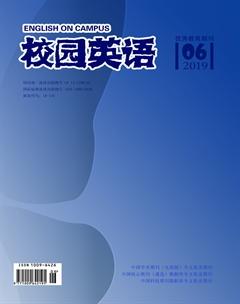An Overview of Australian School’s Genre—based Approach to Writing
【Abstract】The importance of learning and teaching English has received increasing attention with regard to the employment of suitable writing instruction in class. Australian Schools Genre-based Approach (GBA) as a relatively new methodology to teach writing that recently has attracted theoretical interests. The purpose of this paper is to review genre theories and to consider how to effectively apply GBA to writing teaching in English as Foreign Language (EFL) contexts. This paper begins with an overview of the nature of writing, the basic concept of genres and relevant theories of GBA. Then, the author will illustrate the strengths and limitations of GBA, and thereby several pedagogical implications of GBA to teach writing in EFL contexts will be finally discussed.
【Key words】Genre; GBA; Writing
【作者簡介】田雯(1988-),女,贵州贵阳人,贵州医科大学外国语学院,英国约克大学对外英语教学,硕士,研究方向:英语教学法。
1. The nature of writing
In response to the nature of writing, Liu (2007) argues that writing is a creative activity. Gould, Diyanni and Smith (1989) further interpret that this is due to writing making sense of an experience, a text or an event. They advocate that constructing a piece of written work is to not only express oneself but to make the written work understandable (Gould, Diyanni & Smith, 1989). Hence, writing not only has a relationship with grammar, syntax and vocabulary, but more crucially, it concerns about ones thoughts (Zhao, 2011).
Writing is also a way of making output of ones purposes. For achieving satisfactory written work, writers have to experience the process of much rereading and rewriting, and revising the text until it can be reasonably readable and intelligible (Gould, Diyanni & Smith, 1989).
In addition, writing can be treated as a form of social dialogue as a way of communicating with potential readers. From this aspect, it is significant to consider fulfilling expectations of the readers and then writing from the angle of readers as the writer can reach the target audience (Gould, Diyanni & Smith, 1989).
As discussed above, the nature of writing integrates several factors such as cognitive, social and textual elements (Byrne, 1979). That is to say, when one constructs a piece of written work, one has to consider “who write what to whom, for what purpose, why, when, where and how” (Grabe & Kaplan 1996, p: 203). Thus, Liu (2007) proposes that being an effective writer entails students to understand the purpose of writing and the needs of the audience, the writing process, and also learning particular expressions, words, grammatical knowledge and specific features of particular types of texts.

